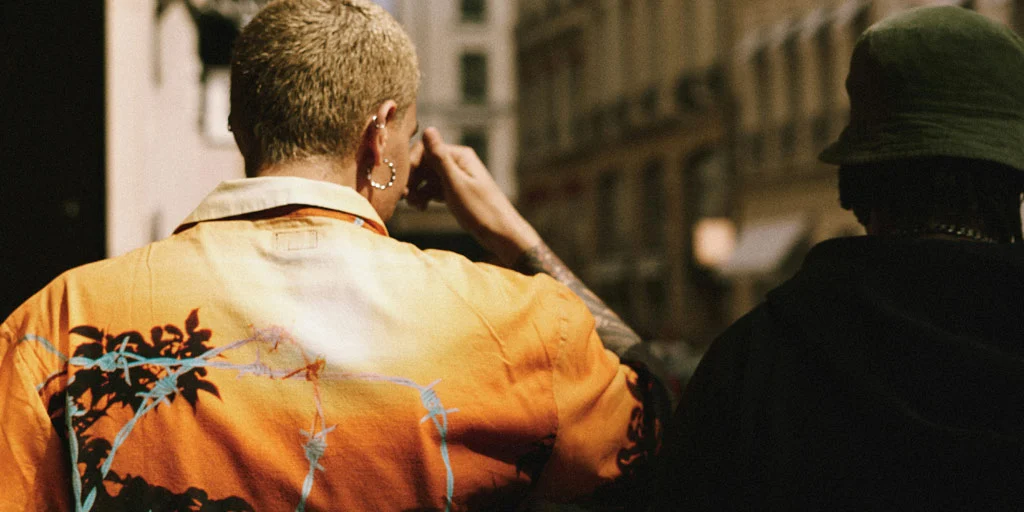Uncategorized
The Environmental Impact of Graphic T-Shirts: How to Shop Sustainably
Graphic T-shirts are more than just a fashion staple; they’re a canvas for self-expression. However, their production has a significant environmental footprint. From material sourcing to printing processes, every step in creating a T-shirt impacts the planet. As sustainability becomes a priority in the fashion industry, it’s essential to understand these effects and make more eco-friendly choices. This guide explores the environmental impact of graphic T-shirts and provides practical tips on shopping sustainably.
Understanding the Impact
The materials used to make graphic T-shirts play a significant role in their environmental footprint. Conventional cotton, for instance, is one of the most resource-intensive crops, requiring vast amounts of water and pesticides. On the other hand, organic cotton is grown without harmful chemicals, making it a more sustainable alternative.
Additionally, the printing methods used for graphic designs often involve toxic inks and generate wastewater, polluting water systems. Energy-intensive production processes further exacerbate environmental harm, especially when factories rely on non-renewable energy sources. Awareness of these issues is the first step toward making better choices.
Choose Sustainable Materials
Opting for T-shirts made from sustainable materials can significantly reduce your carbon footprint. Organic cotton is a popular choice, but there are other eco-friendly fabrics to consider:
- Recycled Fabrics: Look for T-shirts made from recycled polyester or blended materials that reuse waste products.
- Hemp: A highly sustainable crop that requires minimal water and pesticides. Hemp fabric is durable and biodegradable.
- Tencel (Lyocell): Derived from wood pulp, Tencel is produced in a closed-loop system that recycles water and solvents.
When shopping, check the product labels for certifications like GOTS (Global Organic Textile Standard) or OEKO-TEX, which ensure eco-friendly practices.
Look for Ethical Brands
Supporting ethical brands is another way to shop responsibly. Many companies are adopting sustainable practices, from using water-based inks to ensuring fair wages for workers. Transparency is key; brands that openly share their production processes are more likely to be environmentally conscious.
Here are some ethical brands to consider:
- Pact: Specializes in organic cotton clothing, including graphic tees.
- Everlane: Focuses on transparency and sustainable materials.
- Threads 4 Thought: Offers T-shirts made from recycled and sustainable fabrics.
Researching and supporting such brands can drive demand for ethical practices in the fashion industry.
Buy Less, Choose Well
The fast fashion mentality encourages overconsumption, but sustainable shopping means prioritizing quality over quantity. Instead of buying multiple low-cost graphic tees, invest in fewer high-quality pieces that last longer.
To avoid waste, choose designs that resonate with your personal style and can be paired with various outfits. A timeless, versatile T-shirt is always a better choice than a trendy one that may fall out of favor quickly.
Recycle and Repurpose
When your graphic T-shirts have outlived their wearability, consider recycling or repurposing them instead of discarding them. Many organizations and brands offer recycling programs for old clothing, ensuring the materials are reused rather than ending up in landfills.
Alternatively, get creative and transform your old tees into reusable shopping bags, pillowcases, or wall art. These DIY projects not only reduce waste but also give your T-shirts a second life.
Conclusion
Shopping sustainably for graphic T-shirts is not just a trend; it’s a responsibility. Every choice you make—from selecting organic fabrics to supporting ethical brands—can contribute to a healthier planet. By buying less, choosing well, and repurposing old clothing, you reduce waste and minimize environmental harm.
Remember, small actions add up. Your decision to shop responsibly today can inspire others and drive the fashion industry toward a more sustainable future. Together, we can make a difference, one T-shirt at a time.

